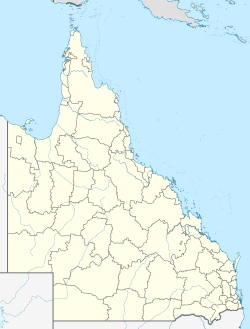| Juunju Daarrba Nhirrpan National Park (Cape York Peninsula Aboriginal Land) | |
|---|---|
 Park bushland | |
| Location | Queensland |
| Nearest city | Cooktown |
| Coordinates | 14°56′28″S145°2′2″E / 14.94111°S 145.03389°E |
| Area | 80.39 km2 (31.04 sq mi) |
| Established | 1977 |
| Governing body | Queensland Parks and Wildlife Service |
Juunju Daarrba Nhirrpan National Park (Cape York Peninsula Aboriginal Land) is a national park in the Shire of Cook, Queensland, Australia. [1] The national park was previously named Starcke National Park until it was renamed on 28 November 2013. [2]
The national park is 1,619 km northwest of Brisbane and has an area of 8,039 hectares. [3]
